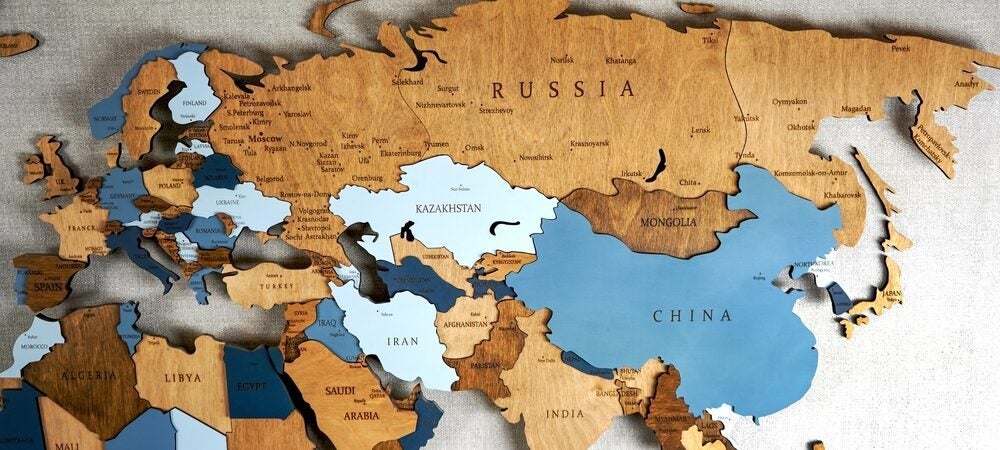The beginning of the 1970s marked a global transition towards democracy, known by many as the “Third Wave of Democratization.” The fall of the Soviet Union in 1989 signaled to the world that democracy was winning over autocracy. The largest authoritarian government had just fallen, and the West was beginning to see its liberal ideology spread across the world. The dissolution of the USSR also coincided with an increase in calls for independence and national identity in the regions surrounding Russia. However, the last two decades have been marked by a global backslide in democracy and liberal values, particularly among hybrid regimes and consolidated autocracies.
Despite having similar stories of conception, post-Soviet Eurasian states (including Armenia, Azerbaijan, Belarus, Georgia, Kazakhstan, Moldova, Tajikistan, Turkmenistan, Ukraine, and Uzbekistan) have varied widely in their transition to independence, their ability to create successful democratic institutions, and the protections provided for the political rights and civil liberties of their citizens. As is the case with Russia, many of the post-Soviet states’ transitions to democracy were never fully realized, and many began to slide back towards authoritarianism – in some cases, even after adopting more liberal policies and democratic institutions following independence. By 1998, Russia had reversed many of its democratic policies and began obstructing political parties, canceling gubernatorial elections, and adopting tight restrictions on freedom of press and assembly. By 2004, Russia had reestablished itself as strongly authoritarian under President Vladamir Putin, and many of the surrounding non-Baltic post-Soviet states followed suit. The coinciding backslide of democracy in Russia and the surrounding states begs the question of if and how Russia may be impacting the political development of other developing nations, specifically post-Soviet Eurasian states.
Russia, however, is not the only autocratic superpower in the region that may be impacting the political development of new/developing nation-states. According to data from the World Bank and The Observatory of Economic Complexity, since 1989, China’s GDP has grown at an average of 9% per year, and their global exports have increase from $330 billion in 2000 to $2.65 trillion in 2020, meaning they have far surpassed Russia in terms of economic power. China is far from a model democracy, having one of the most repressive governments in Asia and providing minimal political rights and civil liberties compared to other states with comparable GDP. Over the past two decades, China has made both explicit power-moves in terms of establishing regional hegemony in Taiwan and Hong Kong, as well as implicit power-moves through financial projects such as their “Belt and Road Initiative”, establishing trade networks, and the purchasing of foreign debts. Thus, it is possible that, in addition to Russia, China has played a significant role in the global shift towards autocracy in the last two decades.
Thus, the underlying question driving my research is: How have Autocratic Superpowers contributed to the global backslide of democracy and human rights over the last two decades? As Human Rights literature and International Development literature have proven, states with representative governments, strong institutions, and high levels of personal freedoms tend to have lower numbers of human rights violations, are less likely to deal with political violence / uprisings, and generally provide a greater standard of living for their citizens. Therefore, it logically follows that the global backslide of democracy and democratic values have coincided with a global backslide of respect and protection of individuals’ rights. In this paper, I will explore whether dependence on authoritarian super-powers (particularly Russia and China) for trade and economic growth has led to a deterioration of political rights and civil liberties for citizens in developing states. To do so, I will focus specifically on the case of post-Soviet Eurasian states.
Spencer Chrein_Senior Honors Thesis (5)
Spencer Chrein is a 2023 Political Science graduate from Washington University in St. Louis and a 2023 Fall Intern at the Washington International Trade Association.
To read the full thesis, click here.

